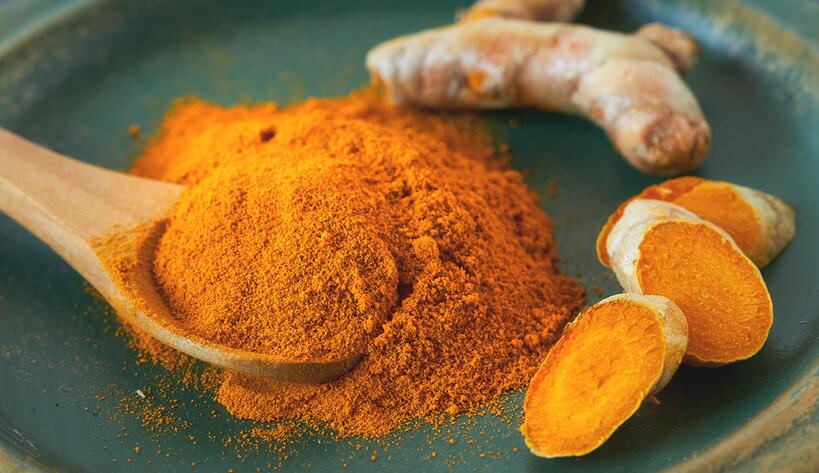Coughing can be quite uncomfortable, especially when it is persistent and dry. A dry cough does not produce mucus, making it difficult to get rid of. It can be caused by various factors such as allergies, infections, or even smoking. Regardless of the cause, finding ways to alleviate the symptoms of a dry cough to prevent it from disrupting your daily life is important.
Fortunately, several home remedies and over-the-counter treatments can help soothe your throat and ease coughing fits. This article will explore some of the most effective ways to get rid of a dry cough and help you breathe easily again. Whether you’re looking for natural remedies or medical treatments, you’ll find some useful tips to help you manage your dry cough.

Common Causes of a Dry Cough
A dry cough is a cough that does not produce any phlegm or mucus. Several factors can cause it.
1. Allergies: A dry cough can be caused by allergies to pollen, dust, pet dander, or other environmental triggers. It is often accompanied by sneezing, a runny nose, and itchy eyes.
2. Asthma: A dry cough is often a sign of asthma, a chronic respiratory condition that causes inflammation and narrowing of the airways. It is usually accompanied by shortness of breath, chest tightness, and wheezing.
3. Acid reflux: Acid reflux is a condition where stomach acid escapes from the stomach and moves up the esophagus. It can cause a dry cough, heartburn, chest pain, and difficulty swallowing.
4. Smoking: Smoking or exposure to secondhand smoke can cause a dry cough. It is usually accompanied by shortness of breath, chest tightness, and wheezing.
5. Medications: Some medications, such as ACE inhibitors used to treat high blood pressure, can cause a dry cough. It is often a side effect and should be discussed with a doctor if it persists.
6. Viral infections: Viral infections, such as the common cold or the flu, can cause a dry cough. It is usually accompanied by other symptoms, such as fever, body aches, and fatigue.
7. Environmental Factors: Exposure to environmental irritants, such as smoke or chemicals, can cause a dry cough.

How to Get Rid of a Dry Cough With Natural Remedy
Here are some best natural remedies for a dry cough.
1. Honey and Lemon
Honey is well-known for its natural antibacterial properties, which help soothe the irritated throat and reduce inflammation. Lemon, rich in vitamin C, boosts your immune system, helping your body fight infections more effectively. Combining honey and lemon can create a powerful elixir to ease coughing and promote healing.
- Squeeze the juice of one fresh lemon into a clean cup.
- Add a tablespoon of pure, raw honey to the cup.
- Stir the mixture well until the honey is fully dissolved in the lemon juice.
- Consume the blend before bedtime for maximum effect, allowing it to coat your throat and soothe irritation.
2. Ginger Tea
Ginger contains potent anti-inflammatory and antibacterial properties that can effectively reduce throat irritation and alleviate dry cough symptoms. The warmth of ginger tea helps relax the respiratory tract and relieves persistent coughing.
- Peel and slice fresh ginger root into thin pieces.
- Boil a cup of water and add the ginger slices.
- Let the ginger steep in the water for 5-10 minutes.
- Strain the tea into a mug and add a teaspoon of honey for added soothing properties.
- Sip the ginger tea slowly to allow it to coat your throat and ease coughing.
3. Steam Inhalation

Inhaling steam infused with eucalyptus oil helps moisten and soothe the respiratory tract, reducing irritation and coughing. Eucalyptus has natural decongestant properties that can clear nasal passages and ease breathing.
- Boil a pot of water until it produces a steady stream of steam.
- Add a few drops of eucalyptus essential oil to the boiling water.
- Carefully lean over the pot, covering your head with a towel to trap the steam.
- Inhale deeply and slowly for 5-10 minutes, taking breaks to avoid discomfort.
- The steam will help clear congestion and provide relief from a dry cough.
4. Saltwater Gargle
Gargling with warm salt water can help reduce throat inflammation and remove irritants, relieving a dry cough. The saltwater also helps create an unfavorable environment for bacteria, reducing the risk of infections.
- Dissolve half a teaspoon of salt in a cup of warm water.
- Take a sip of the saltwater and tilt your head back.
- Gargle the solution in your throat for 15-30 seconds.
- Spit out the saltwater and repeat the process several times a day as needed.
5. Licorice Root
Licorice root contains compounds with demulcent and expectorant properties, soothing an irritated throat. The sweetness of licorice can also help suppress coughing.
- Bring a cup of water to a boil.
- Add a teaspoon of dried licorice root to the boiling water.
- Allow the mixture to simmer for 10-15 minutes.
- Strain the tea and let it cool slightly before drinking.
- Sip the licorice root tea slowly to enjoy its soothing benefits.
6. Thyme Infusion
Thyme has antitussive properties, which means it can effectively suppress coughing. It also contains compounds that have expectorant properties, helping to loosen mucus and ease congestion.
- Boil a cup of water.
- Add a tablespoon of dried thyme leaves to the boiling water.
- Let the thyme steep for 5-10 minutes.
- Strain the infusion and drink it warm.
- Enjoy thyme infusion 2-3 times daily to relieve a dry cough.
7. Pineapple Juice
Pineapple contains an enzyme called bromelain, which has anti-inflammatory properties and can help reduce throat irritation and coughing. Additionally, pineapple juice is rich in vitamins and antioxidants, supporting your immune system.
- Cut a fresh pineapple and extract the juice using a juicer or blender.
- Consume fresh pineapple juice without added sugars.
- Drink the juice 2-3 times a day for best results.
8. Turmeric Milk

Turmeric’s active compound, curcumin, possesses potent antioxidant and anti-inflammatory properties. These properties can help reduce inflammation in the respiratory tract, alleviating coughing and irritation.
- Add a teaspoon of turmeric powder to a cup of warm milk.
- Stir well until the turmeric is fully dissolved.
- Consume the turmeric milk before bedtime for a soothing effect on your throat.
9. Marshmallow Root Tea
Marshmallow root contains mucilage, a gel-like substance that coats the throat and provides a soothing effect. This can help alleviate dry cough symptoms and reduce irritation.
- Bring a cup of water to a boil.
- Add a tablespoon of dried marshmallow root to the boiling water.
- Allow the mixture to simmer for 10-15 minutes.
- Strain the tea and let it cool slightly before drinking.
- Sip the marshmallow root tea slowly to experience its calming benefits.
10. Slippery Elm
Slippery elm can help soothe a dry cough by forming a protective layer on the throat. This coating effect helps reduce irritation and suppress coughing.
- Take slippery elm lozenges or capsules as directed on the packaging.
- Alternatively, prepare slippery elm tea using powdered slippery elm bark.
- Mix the powdered bark with hot water, steep, and strain before drinking.
11. Honey and Cinnamon
Both honey and cinnamon possess antimicrobial properties that can help fight infections and soothe the throat. The combination of these ingredients creates a potent remedy for dry cough relief.
- Mix a teaspoon of honey with a pinch of cinnamon powder in a bowl.
- Consume the mixture twice daily, preferably in the morning and before bedtime.
- Enjoy the sweet and spicy blend to ease coughing and throat irritation.
12. Echinacea Tincture
Echinacea is renowned for enhancing the immune system, helping your body combat the underlying causes of your dry cough, and promoting faster recovery.
- Follow the dosage instructions on the echinacea tincture bottle.
- Typically, you can mix the recommended drops with water and consume the mixture as directed.
How to Get Rid of a Dry Cough With Medical Methods
1. Over-the-Counter Medication:
Over-the-counter medication can provide relief from dry coughs. Medications such as dextromethorphan, guaifenesin, and antihistamines can reduce dry coughs. Always consult your doctor before taking any medication, as some can interact with other drugs.
2. Inhalers:
Inhalers are an effective method of treating dry coughs. These medications can be used to ration and thin mucus secretions in the airways, allowing the air to move more freely. Your doctor’s instructions should use inhalers.
3. Steam Therapy:
Steam therapy can help relieve breathing in hot, humidified air, which can help thin mucus secretions and reduce inflammation in the airways. This can be done by taking a hot shower or using a humidifier.
How to Get Rid of a Dry Cough By Lifestyle Change
1. Avoid Irritants: If you want to get rid of a dry cough, avoid inhaling smoke, dust, and other irritants. These can irritate your throat and worsen your condition. Consider wearing a face mask if you are around these pollutants.
2. Stay Hydrated: Drink plenty of fluids throughout the day to keep your throat moist. This will help reduce the irritation and make coughing up any mucus stuck in your throat easier.
3. Avoid Dairy: Dairy products like milk, cheese, and ice cream can increase mucus production and worsen a dry cough. Try to avoid these products if you are suffering from this condition.
4. Use Humidifiers: Dry air can worsen your cough. Keep your home or office air as humidified as possible. A humidifier can help increase the room’s humidity level and makes breathing easier.
5. Get Plenty of Rest: When you are sick, the body needs extra rest to help fight off the infection. Get plenty of rest and relax so your body can heal itself.
6. Avoid Caffeine: Caffeine can worsen a dry cough. Limit your caffeine intake until your condition improves.
7. Take a Steamy Shower: Taking a steer can help loosen mucus and make coughing easier. The steam will also help keep your throat moist, which can help reduce irritation.
8. Try Over-The-Counter Remedies: Try an over-the-counter cough suppressant or expectorant if your cough persists. These medications can help reduce the irritation and make it easier to cough up phlegm.
When to see a doctor?
A dry cough can be an annoyance and can disrupt your daily routine. In most cases, it is not a serious condition and can be treated with over-the-counter medications.
However, if you are experiencing a persistent dry cough lasting more than two weeks, it is essential to consult a doctor. A prolonged dry cough may be a symptom of an underlying health condition such as asthma, pneumonia, or bronchitis.
Other symptoms, such as chest pain, difficulty breathing, and fatigue, may accompany a dry cough. If you are experiencing any of these symptoms, it is crucial to seek medical attention.






